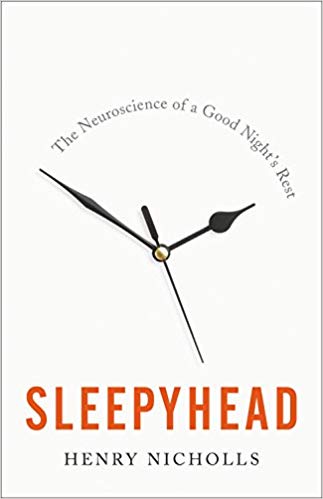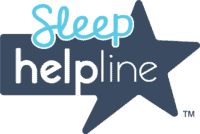Recommended Reading: SLEEPYHEAD
Henry Nicholls Wants His Hypocretins Back
When he was 21 years old, Henry Nicholls was diagnosed with narcolepsy. While the condition changed his life, it didn’t prevent him from becoming an acclaimed science journalist and author, known throughout the United Kingdom as the “panda expert.”

Why We Love This Book
The book blends personal stories, historic accounts, scientific investigations, and literary references in an engaging chronicle of humanity’s quest to understand what sleep is, why it’s important for health, and how, as Nicholls writes, “the pace of modern society poses many threats to the quantity and quality” of it.
Sleepyhead is full of surprising and fascinating information about a host of sleep issues, ranging from rare circadian rhythm disorders to the much more common sleep apnea, which put sleep disorders medicine on the map in the 1980s. In addition to explaining how the CPAP machine was invented, Nicholls delves into other treatment methods for disrupted sleep, from smart lighting and playing the didgeridoo to new medicines that may one day replace the hypocretins, key brain chemicals that help sustain alertness and prevent REM sleep from occurring at the wrong times, that are missing in the brains of people with type 1 narcolepsy with cataplexy.
Personal Discovery
A course of cognitive behavioral therapy (CBT) is another treatment Nicholls talks about in a very personal way. In addition to dealing with the episodes of excessive daytime sleepiness of narcolepsy (along with cataplexy, sleep paralysis, and hypnagogic hallucinations), Nicholls discovered that he also has disrupted nighttime sleep, or insomnia. By reluctantly taking a CBT course designed for people with insomnia and focusing on two particular evidence-based techniques—sleep restriction and articulatory suppression—Nicholls relates that he realized “a depth and continuity of sleep” that he can’t remember experiencing before. “In my 20+ years with narcolepsy,” he writes, “the CBT course for insomnia has given me the single most important improvement on my … condition.”
The Serendipity of Science
Sleepyhead is a sober but hopeful book. While it doesn’t gloss over any of the challenges faced by people with narcolepsy and other sleep disorders, it gives practical advice that anyone can use to improve their sleep. What’s more, the book’s provocative and sometimes amusing insights into the “serendipity of science” give us all hope that Henry, and the three million other people around the world living with narcolepsy, will indeed get their hypocretins back one day.
Order your copy today, share pictures of the book on social media to raise awareness, and let us know what you think in the comments below! U.S. Amazon Page for Sleepyhead
Article by Ed Sweet: Ed currently serves as Treasurer on Project Sleep’s Board of Directors, along with being an independent copywriter, ghostwriter and songwriter.






1 Comment. Leave new
I ordered the UK version of the book after reading the article Nicholls wrote last year (https://www.cnn.com/2017/10/24/health/sleep-research-narcolepsy-partner/index.html ) and it is definitely worth reading. His book is accessible to those with no understanding of narcolepsy, and useful to those afflicted by it.
Also, having written to him earlier this year, I found Henry to be a very thoughtful, well spoken and respectful person, and would highly recommend seeing if he could take part in one of project sleep’s monthly fb live events. I would contribute to any fundraiser to help make this happen.